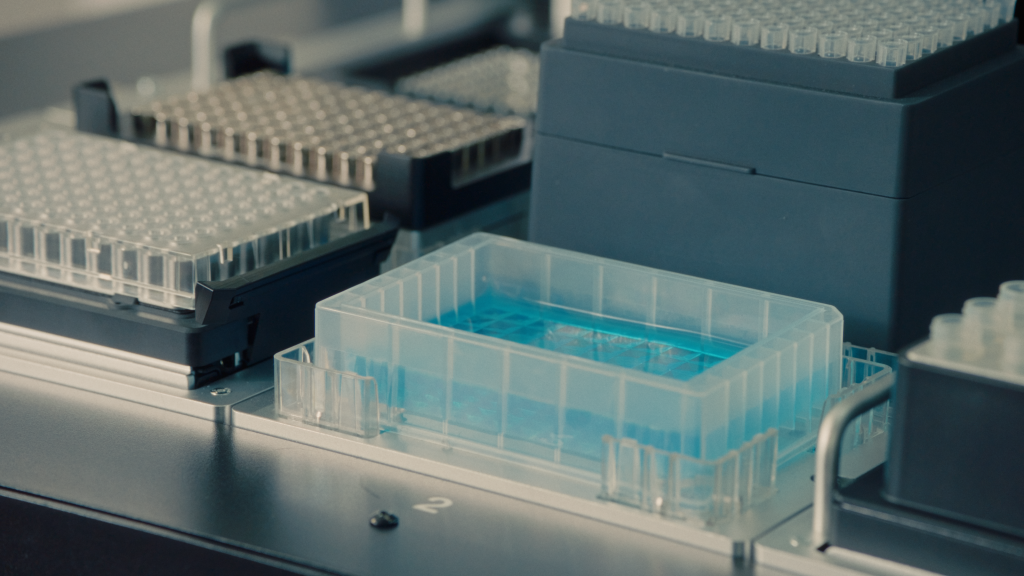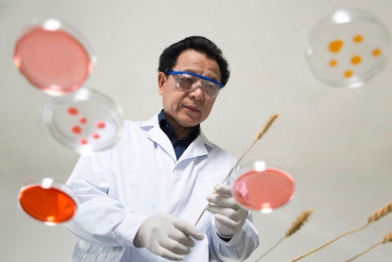-
 article · 2025Year35Moon2Day
article · 2025Year35Moon2DayFlex Prep 快速操作界面支持哪些实验任务?
Read More -
 article · 2025Year10Moon2Day
article · 2025Year10Moon2DayFlex校准维护手册:避免吸头高度不一致的技巧
Read More -
 article · 2025Year4Moon2Day
article · 2025Year4Moon2DayFlex移液器能否支持多种液体的切换操作?
Read More


Polymerase chain reaction (PCR) amplification is an important molecular biology technology and is widely used in genetic research, medical diagnosis, and forensic identification. This article will introduce in detail the characteristics, advantages and disadvantages, principles and processes of PCR amplification:

1. Characteristics of PCR amplification
PCR amplification technology can quickly and accurately copy specific DNA sequences and is an indispensable tool in modern biological research. Its main features include high specificity, high sensitivity and rapidity. Through PCR amplification, researchers can amplify target DNA fragments millions of times within hours, allowing even minute DNA samples to be fully analyzed.
2. Principle of PCR amplification
The core principle of PCR amplification is to use DNA polymerase to synthesize DNA under specific conditions. The process mainly includes three steps: denaturation, annealing and extension.
1. Denaturation, DNA double strands are separated into single strands at high temperature;
2. Annealing, specific primers bind to single-stranded DNA;
3. Extension, DNA polymerase extends in the direction of the primer to synthesize a new DNA strand.
These three steps cycle repeatedly, ultimately achieving exponential amplification of the target DNA sequence.
3. PCR amplification process
1. Sample preparation: Extract DNA from biological samples and determine the target sequence to be amplified.
2. Reaction system preparation: Add template DNA, primers, dNTPs (deoxynucleotide triphosphates), DNA polymerase, buffer and other reaction components to the PCR reaction tube.
3. Denaturation: Heat the reaction system to 94-98°C to separate double-stranded DNA into single strands.
4. Annealing: Reduce the temperature to 50-65°C, and the primer binds to the single-stranded DNA.
5. Extension: Raise the temperature to 72°C, and DNA polymerase synthesizes new DNA strands along the direction of the primer.
6. Cycle: Repeat the above denaturation, annealing and extension steps 30-40 times to finally obtain a large number of target DNA fragments.
7. Detection: Detect the PCR amplification product through electrophoresis and other methods to confirm the amplification result.
4. Advantages of PCR amplification
1. High specificity: By designing specific primers, PCR amplification can accurately copy the target DNA sequence and avoid non-specific amplification.
2. High sensitivity: PCR amplification can amplify enough target fragments from a very small amount of DNA samples, and is suitable for the analysis of trace samples.
3. Rapidity: The entire PCR amplification process is usually completed within a few hours, which greatly improves experimental efficiency.
Widely used: PCR amplification technology is widely used in gene cloning, mutation detection, pathogen detection, paternity testing and other fields.
5. Disadvantages of PCR amplification
1. Susceptible to contamination: Due to the high sensitivity of PCR amplification, foreign DNA contamination may lead to false positive results. Therefore, the laboratory environment and operators need to strictly abide by aseptic operating procedures.
2. High primer design requirements: Primer design is crucial to the specificity and efficiency of PCR amplification. Improper primer design may lead to non-specific amplification or low amplification efficiency.
3. The length of the amplified fragments is limited: Traditional PCR amplification is suitable for DNA fragments of 1-3kb. The amplification efficiency of longer fragments is low and requires a special amplification system.
As a core technology, PCR amplification is widely used in various research fields because of its high specificity, high sensitivity and rapidity. Although there are shortcomings such as susceptibility to contamination and high primer design requirements, these problems can be effectively controlled through strict experimental operations and optimized reaction conditions. In the future, with the continuous development of technology, PCR amplification will play a more important role in more fields.
The experienced service team and strong production support team provide customers with worry-free order services.

简体中文

繁體中文

English

日本語

한국인